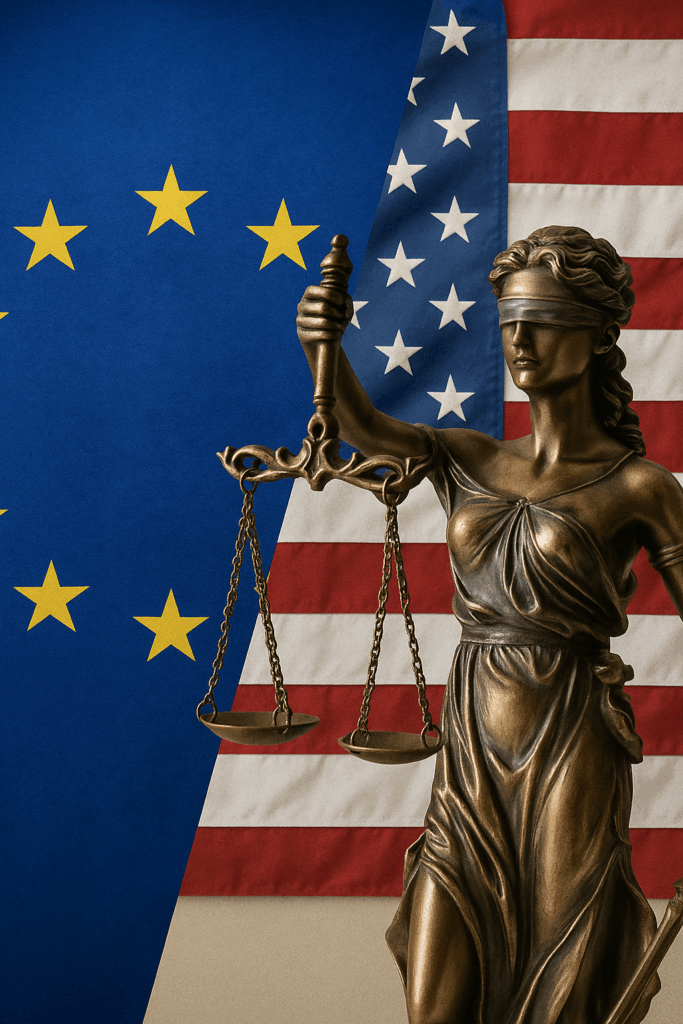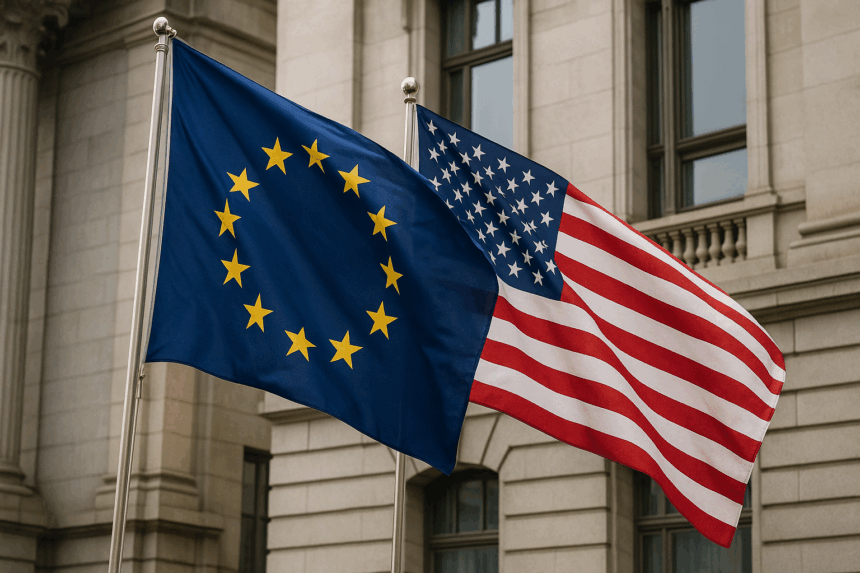The European Union’s General Court has upheld the 2023 data transfer agreement between the EU and the United States, providing stability for thousands of companies that rely on cross-border data flows. The ruling rejects a challenge from French MEP Philippe Latombe, who argued that the agreement failed to protect European citizens’ privacy adequately. This decision impacts businesses, trade relations, and technological development between two of the world’s largest economies.
What’s Happening & Why This Matters
A Crucial Ruling for International Business
The court’s decision means over 2,800 U.S. companies can continue using the agreement to transfer data seamlessly across the Atlantic. These transfers are essential for industries ranging from cloud services to artificial intelligence (AI)development. Without this agreement, companies could face costly disruptions and regulatory uncertainty.
The Business Software Alliance welcomed the ruling, stating it “provides stability and reassurance for businesses and consumers on both sides of the Atlantic who rely every day on trusted cross-border data flows.” This outcome prevents immediate legal complications for firms engaged in digital commerce and innovation.

Background: Failures and Tensions
This agreement follows two earlier frameworks — Safe Harbour and Privacy Shield — both struck down by the EU Court of Justice in 2015 and 2020, respectively. Those rulings reflected growing EU concerns about U.S. surveillance practices and inadequate privacy protections for Europeans.
Unlike past negotiations, today’s geopolitical climate is tense. Disputes over trade and digital regulation strain relations between Washington and Brussels. While past talks aimed for cooperation, recent developments, including Donald Trump’s re-election, have shifted priorities and heightened scrutiny.
The Implications
Latombe argued that the agreement allows disproportionate data collection, lacks transparency, and provides insufficient legal remedies for EU citizens. However, the court dismissed his challenge, finding he failed to prove direct personal impact.
Joe Jones, director of research at the International Association of Privacy Professionals (IAPP), explained to Euronews, “The consequences of disruption to data transfers are likely to be more acutely felt today, especially regarding trade and technological development like AI model training.” Jones also warned that invalidating the agreement could have triggered escalation and possible U.S. retaliation.
Despite this ruling, uncertainty remains. Latombe has the option to appeal to the EU Court of Justice, which has historically been stricter in privacy cases and has previously invalidated similar agreements. The next evaluation of the current deal’s adequacy is scheduled for 2027.
TF Summary: What’s Next
The ruling brings temporary stability to transatlantic data flows, protecting businesses and consumers dependent on cross-border digital services. However, the possibility of an appeal means the debate over privacy and surveillance is far from settled. Companies should prepare for potential regulatory changes while governments establish privacy protections in the economic realities of digital trade. The outcome of any future legal hiccups resets the future of international data governance.
— Text-to-Speech (TTS) provided by gspeech


